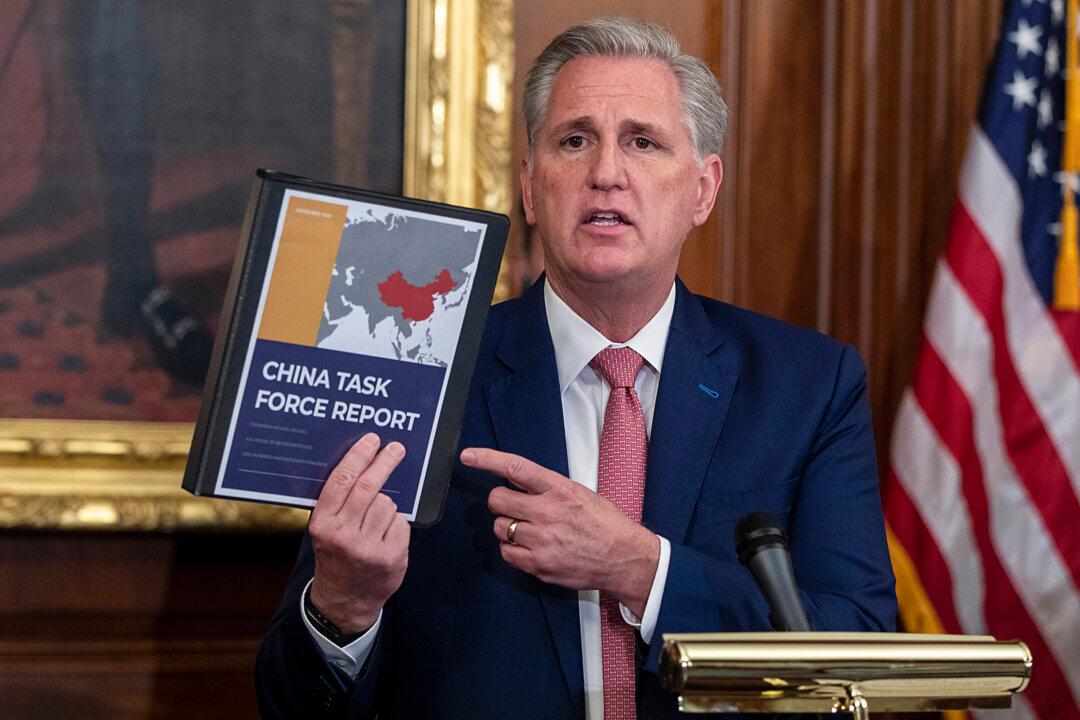Leading House Republican lawmakers introduced a measure on Oct. 20 that would recognize the Chinese Communist Party (CCP) as the “United States’ prevailing economic and national security threat of this generation.”
The 25-page legislation, titled the China Task Force Act (pdf), bundled together 137 key China-related legislative recommendations, including existing bills, resolutions, and other measures, for speedy passage. They cover a wide range of issues, including proposals to sell arms to Taiwan, secure safe 5G networks, punish the Chinese regime’s suppression of ethnic minorities, curb imports of Chinese products made with slave labor, and condemn China’s organ trafficking.





